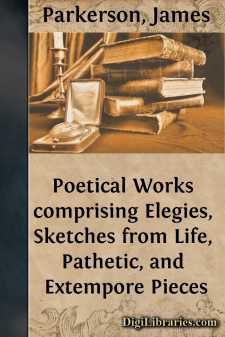Fiction
- Action & Adventure 180
- Biographical 15
- Christian 59
- Classics
- Coming of Age 5
- Contemporary Women 3
- Erotica 8
- Espionage/Intrigue 12
- Fairy Tales, Folklore & Mythology 236
- Family Life 169
- Fantasy 117
- Gay 1
- General 596
- Ghost 32
- Historical 808
- Horror 43
- Humorous 160
- Jewish 25
- Legal 4
- Medical 22
- Mystery & Detective 315
- Political 49
- Psychological 41
- Religious 64
- Romance 159
- Sagas 11
- Science Fiction 730
- Sea Stories 113
- Short Stories (single author) 537
- Sports 10
- Suspense 1
- Technological 8
- Thrillers 2
- Urban Life 31
- Visionary & Metaphysical 1
- War & Military 173
- Westerns 199
Classics Books
Sort by:
MY APOLOGY What I have written may seem to some, who have never tossed an hour on salt water, nor, indeed, tramped far afield on dry land, to be astounding, and well-nigh beyond belief. But it is all true none the less, though I found it easier to live through than to set down. I believe that nothing is harder than to tell a plain tale plainly and with precision. Twenty times since I began this...
more...
CHAPTER I. SIR PETER CHILLINGLY, of Exmundham, Baronet, F.R.S. and F.A.S., was the representative of an ancient family, and a landed proprietor of some importance. He had married young; not from any ardent inclination for the connubial state, but in compliance with the request of his parents. They took the pains to select his bride; and if they might have chosen better, they might have chosen worse,...
more...
CHAPTER I THE CASTOR AND POLLUX OF ELIZABETHAN DRAMA "Among those of our dramatists who either were contemporaries of Shakespeare or came after him, it would be impossible to name more than three to whom the predilection or the literary judgment of any period of our national life has attempted to assign an equal rank by his side. In the Argo of the Elizabethan drama—as it presents itself to the...
more...
by:
L. B. Walford
"SHE HAS NO SETTLEMENT, DAMN IT." "She can't come." "But, father——" "She shan't come, then—if you like that better." "But, father——" "Aye, of course, it's 'But father'—I might have known it would be that. However, you may 'But father' me to the end of my time, you don't move me. I tell you, Sukey,...
more...
CHAPTER I. THE CHILD AND THE GIRL. 1818-1839. I. Birth-place and Ancestry. Seth Payson. Edward Payson. His Mother. ASketch of his Life and Character. The Fervor of his Piety. DespondentMoods and their Cause. Bright, natural Traits. How he prayed andpreached. Conversational Gift. Love to Christ. Triumphant Death. Mrs. Prentiss was fortunate in the place of her birth. She first saw the light at Portland,...
more...
by:
James Parkerson
THE BANKRUPT. Oft have you pray’d me, when in youth,Never to err from paths of truth;But youth to vice is much too prone,And mine by far too much, I own.Induced to riot, swear, and game,I thought in vice t’acquire fame;But found the pois’ning scenes of riotSoon robb’d my mind of joy and quiet.The usual course of rakes I ran,The dupe of woman and of man.Careless of fortune’s smile or frown,My...
more...
by:
John Milton
PREFACE. The purpose held in view by those who place the study of Milton in high school English courses is twofold: first, that youth may seasonably become acquainted with a portion of our great classic poetry; and, secondly, that they may in this poetry encounter and learn to conquer difficulties more serious than those they have met in the literature they have hitherto read. It is for the teacher to...
more...
In the fall of the year 1863, during the Civil War, while serving in the signal corps attached to the fourth corps of the army of the Cumberland, it was my privilege to have a good station on Moccasin Point, opposite Lookout Mountain, on the north side of the Tennessee river, from which to witness the assault of the Union troops under Gen. Hooker up the north face of the mountain, and also the charge...
more...
by:
Edna Ferber
I The editor paid for the lunch (as editors do). He lighted his seventh cigarette and leaned back. The conversation, which had zigzagged from the war to Zuloaga, and from Rasputin the Monk to the number of miles a Darrow would go on a gallon, narrowed down to the thin, straight line of business. "Now don't misunderstand. Please! We're not presuming to dictate. Dear me, no! We have...
more...
Chapter I. Highlanders of Northern Luzon.—Meaning of the word “Igorot.”—Trails.—The Mountain Province.—Nature of the country. It is to be regretted that the people of the United States should in general show so little interest in the Philippine Islands. This lack of interest may be due to lack of knowledge; if this be so, then it is the duty of those better informed to do all that lies in...
more...











